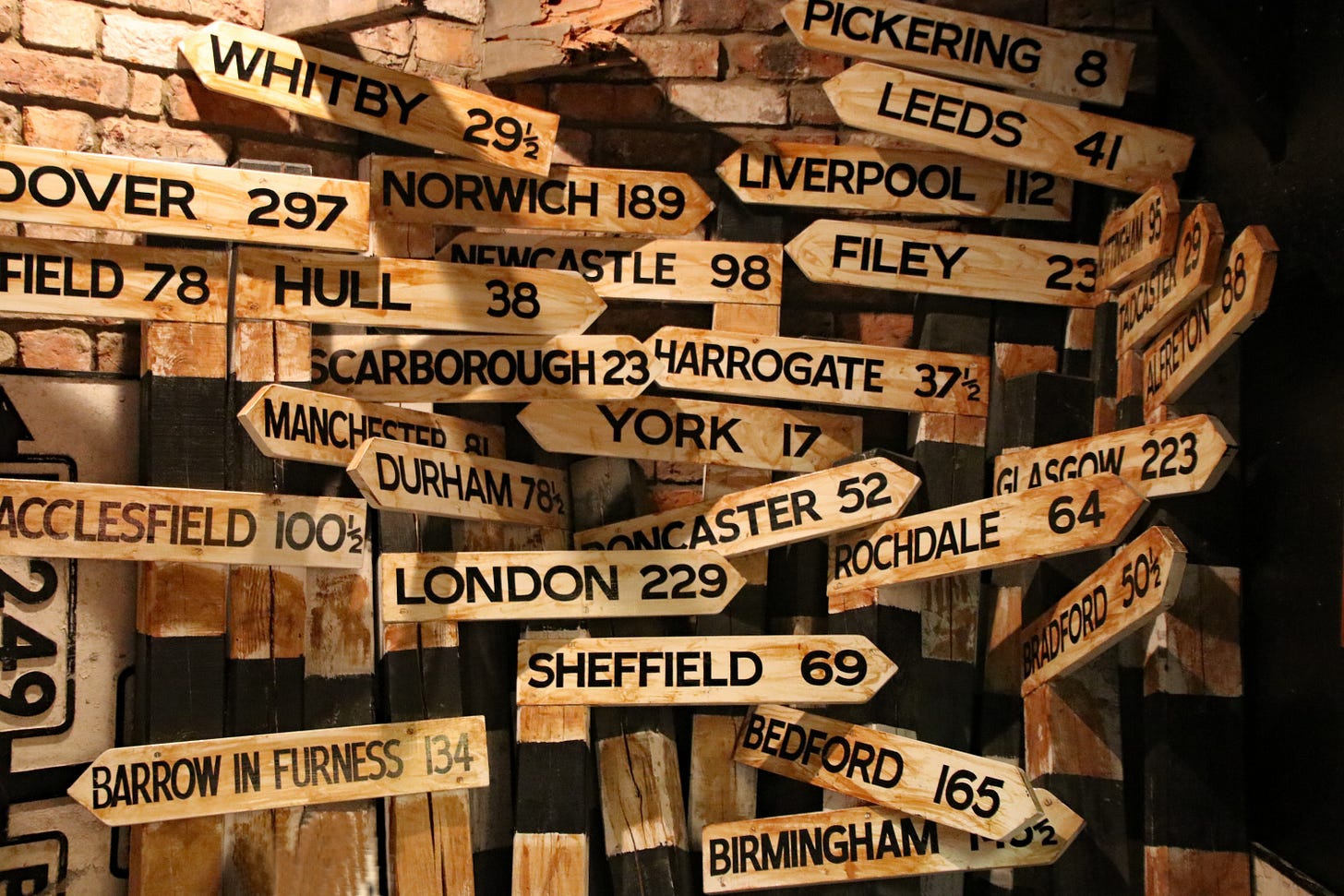This Week #11: What should new PMs over-index on, and empowering product in a sales-driven org
With guest contributor Jackie Bavaro - author of Cracking the PM Interview
Hello, I’m Lenny and welcome to another edition of my newsletter. Every week I will humbly answer your questions about building product, driving growth, working with other humans, and anything else that’s stressing you out at the office. Send me your questions and in return, I’ll give you practical real-talk advice 🤝
If you’re returning from last week, thank you! If you’re new to this newsletter, nice to have you! 🤜🤛
This week:
What should I be over-indexing on in my early PM career?
How do I get buy-in from leadership to empower product teams?
Inspirations for the week ahead
If you’re finding this valuable, tell your friends!
On to this week’s questions…

Q: Early on in my PM career, what should I be over-indexing on? Working with smart people? Tackling a lot of problems? Taking on new responsibilities in other functions (design, marketing, etc.)? Obviously these all matter (or maybe they don't), but which ones matter more?
I love this question. As a new PM, you’ll quickly start to get pulled in all the directions, so it’s important to put some thought into what skills you should be building as you execute day-to-day. I was chatting with Jackie Bavaro (co-author of Cracking the PM Interview) about this question and she had some excellent suggestions, which she generously offered to share below. If you find this advice valuable and want more, she’s currently working on a new book about how to become a great product manager and succeed in your career (click here to sign up and be notified when it’s out). Enjoy!
—
The best things to optimize for depends of course on what your goals are, but early in your career, I'll assume your medium-term goals are to increase your odds of landing a senior PM job at a great company.
Assuming that’s true, early in your PM career it's best to focus on (1) shipping wins, (2) learning best practices, (3) getting baseline credentials and (4) starting your network.
1. Shipping wins
The most important thing for your career is to ship things that are “wins”. It's fine to have some failures, especially when you learn a lot from them, but in the end, you need to have some hits to be a good PM. It's your successes that will drive your career forward.
Early in your career, one of the best ways to influence this is to join a team that ships frequently. Shipping frequently gives you a lot of swings at the bat, and gives you a lot of opportunities to learn.
Another way to influence this is to join a team where wins are more likely. This could be because you've got great teammates or the problem space has lots of untapped opportunities.
And of course, the most important part of this is your own contribution to those wins. Do product discovery, validate your ideas early, and remove any roadblocks that could interfere. Smart time management is important here. To your question, tackling lots of problems or taking on new responsibilities could be a distraction, so make sure you're first doing everything you can to ensure your main project is a success.
Finally, make sure you stay with the team long enough to ship and measure the win. There's a lot of learning that comes from reflecting on a launch and iterating. If you're planning to stay at the same company, stay long enough for that win to show up on your performance review.
2. Learning best practices
Early in your career is the time to learn the ropes, and this generally means working at a company that does product management well.
Most of the well-known tech companies that help with credentials (see part 3) also have strong PM practices. If you're lucky enough to have a choice, rotational programs are great, since you get to see best practices applied on multiple teams which helps with pattern matching. If you're not in a rotational program, consider switching teams after a year to get the same benefit.
If you've been promoted to be the first PM at your company, that's great, but you won't learn as fast if you're trying to figure it all out yourself without a strong mentor. If you're in this position, see if the company will pay for a product coach.
3. Getting baseline credentials
If you're expecting to switch companies at some point in your career, credentials help a lot. For PM, this generally means either a great undergrad degree (Stanford, MIT, etc) or 2+ years at a well-known tech company.
It's especially nice to focus on these credentials early in your career because the places that look good on your resume overlap a lot with the places where you can learn best practices, and many of them are open to hiring new grads.
You don't need to overdo it on the credentials—you just need enough that you'll pass the resume screening. Be a little wary of all the Stanford grads telling you there's no reason to work at Google or Facebook since they might have a better safety net than you. On the other hand, after 2 years, only stay if you want to.
If you do start your career at a less well-known company, there's always the hope that it will take off and be well known by the time you're ready to make a switch, or that your networking skills can help you find your next role. If you get stuck and can't get interviews at the kinds of places you want to work, that's when a lot of people go back to get an MBA.
4. Building your network
Finally, it's good to think about networking early in your career. The people you meet in your first few years might help you get a job later on, or they might be the people you try to recruit to your new startup eventually. You might even reach out for advice, mentorship, or partnerships. Starting early is good because it's helpful to have senior people in your network and the junior people you meet now might be senior by the time you need them.
For people inside your company, pay attention to the people you'd want to work with again and make sure they'll want to work with you again too. Some of this is pure relationship building: chat with them in the hallways, eat lunch together, stay in touch with them after one of you leaves. The other part of it is around how you do your job: respect your teammates, share credit, value their opinions, make teamwork fun, and make sure the product is successful.
For more general-purpose networking, I love the article Jules Walter wrote, Networking for Introverts.
I've seen many PMs be successful by focusing on these four areas. Good luck!
[🎁Sponsored 🎁] This week’s featured open role comes from Outschool. Outschool is a very special company, whose mission is to inspire kids to love learning. They do that by linking learning to kids’ interests (make it fun!) and giving kids the autonomy to pick their own path from thousands of small group classes. Kids aged 3-18 years old can learn anything from game design to photography. I’ve worked with the founders a bit and I can tell you that they are amazing.
👉 Outschool is hiring their first product manager 👈
I asked Amir, their CEO, to offer a nugget of wisdom from Outschool’s product development process. Here’s what he shared:
You can use product values to guide product work like cultural values can guide a company. Product values provide high level guidance on how to approach problems and can be a subjective, qualitative measure of success to complement metrics goals. Some of Outschool's product values are: stand for learners, embrace variety, promote relationships and personalize.
If you’d like to learn more about their open role, click here.

Q: I'm really interested in getting your thoughts on how to get buy-in from leadership to empower product teams. We have every little engagement between product and sales, there’s an expectation that projects should be fully scoped before starting, and then fully executed as scoped. We also have no design resourcing, with the expectation that PMs do design, or we just copy what our competitors are doing. It feels like working in an old school project management org. Am I comparing my product team to the airbrushed Instagram photos of other product teams?
No product team is perfect, but no Instagram filter is going to make this look good. Your situation sounds just plain bad.
If you are able to, my frank advice is to find another place to work. Ideally a product-led company. Being a PM, you’ll have the best time and learn the most at a product-led org. Otherwise, product will always be a second-class citizen.
How do you know what kind of company you’re working at? A rule of thumb is wherever the majority of your growth comes from, that’s who’s driving the ship. For example, companies like Coinbase, Dropbox, and Instagram are often said to be product-led. Companies like Facebook and Stripe are said to be engineering-led. Salesforce (and most B2B businesses) are generally sales-led. And I’d venture to guess Casper and Hims and most DTC businesses are marketing-led. They are all interesting places to work, but you’ll have the best time being at a company where your part of the org is driving.
See if you can find a company where product, eng, or design is driving the ship. And, again, if you can, I’d move on.
Inspirations for the week ahead 🧠
Watch: John Foley, founder and CEO of Peloton, pitching Peloton — Starts slow, but man, what a pitch.
Subscribe: Eugene Wei’s newsletter — Eugene is one insightful guy, who also happens to write extremely well.
Listen: Bill Gurley: All Things Business and Investing — So much wisdom, particularly on how to think about marketplace businesses.
That’s it for this week!
Photo credits: Pixabay, Kat Jayne
If you’re finding this newsletter valuable, consider sharing it with friends!
If you’d like some advice yourself, just reply to this email. Each week, I’ll tackle a few reader questions (keeping your name and company anonymous) until you stop sending me questions 😬
Sincerely,
Lenny 👋





Have just started as a PM and this article is of GREAT value!